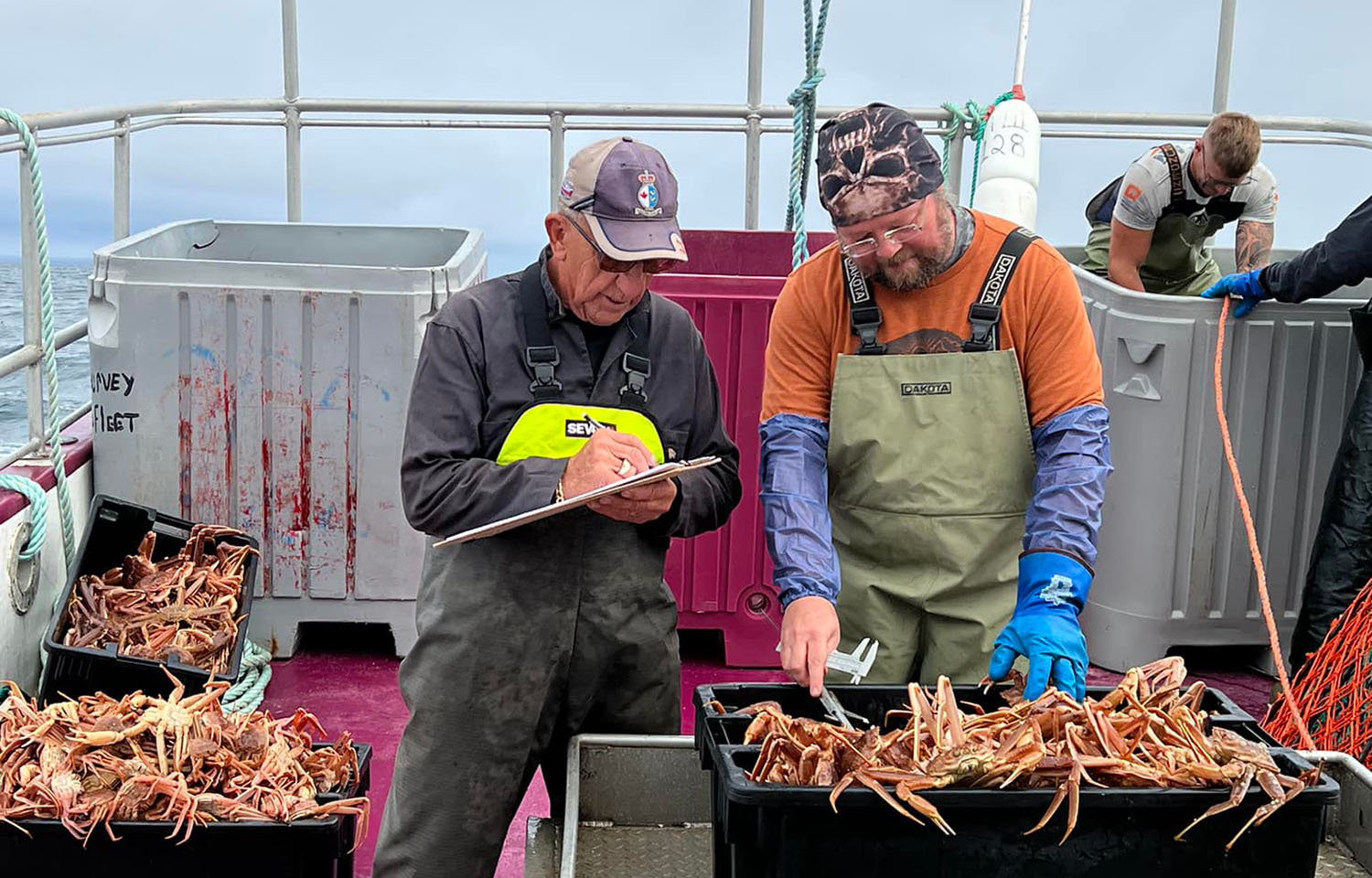The Newfoundland and Labrador Standing Fish Price Setting Panel has settled on the minimum price that the Canadian province’s snow crab harvesters will be paid during the season, selecting the processors' suggested price over the Fish Food and Allied Workers Union's (FFAW) preferred price for the third year in a row.
The price-setting panel has chosen a pricing formula created by the Association of Seafood Producers (ASP), which sets the minimum price that snow crab harvesters will get for their catch at CAD 2.60 (USD 1.91, EUR 1.77). That price is up from the CAD 2.10 (USD 1.54, EUR 1.43) minimum price set in 2023, which was the lowest price in a decade and drove fishermen to tie up and refuse to fish for six weeks.
The new formula is based on the average low price posted by Urner Barry. Once the average posted low price reaches CAD 7.43 (USD 5.47, EUR 5.08) per pound, the pricing will shift and apply a formula using the average minimum price. The formula – y = min (0.13x^2 – 1.4x + 5.83, 0.37x) – factors in the current exchange rate between the U.S. dollar and the Canadian dollar and will see the price paid to harvesters increase if the raw material price increases. Once the price reaches CAD 8.02 (USD 5.91, EUR 5.48), the harvester share of the price is capped at 37 percent.
FFAW President Greg Pretty called the decision “extremely disappointing." He said the union’s pricing formula was based off of the Blackwood report, a strategic review of the snow crab price-setting process released on October 2023.
“In the end, the panel chose to throw out that work and those well-researched recommendations for a formula that is tied to nothing except more money for the processors,” Pretty said.
The Blackwood report came with several recommendations that Pretty said would have made the prices paid for snow crab more equitable between harvesters and processors and also would have eliminated the variability in earnings harvesters get depending on when they fish.
“There was a better way to do this. The work was already done by Glen Blackwood in his report. The Blackwood formula provided a way for harvesters to be paid a fair market share, but that was tossed aside for a formula that is not tied to information harvesters can trust,” Pretty said.
The Blackwood formula effectively normalizes the price across the harvest season by having an initial payment structure paying 80 percent of the raw material costs to harvesters throughout the snow crab season, with the remaining value settled at the end of the season based on average pricing. The formula essentially ends up paying harvesters the same amount across the season regardless of when they fish – reducing the pressure on fishermen to only go fishing when the price is up, which can lead to spikes in supply and a subsequent drop in price.
The price-setting panel, however, said that the FFAW’s proposal modified how to apply the formulas presented in the Blackwood report.
“It is important to note that while the proposed formula looks similar to that of the Blackwood formula, it is not the same when we consider the entirety of the FFAW’s offer,” the panel wrote in its decision.
According to the panel’s decision, the FFAW presented a “sliding scale” that could have resulted in harvesters having to pay back processors if they were overpaid over the course of the season.
“FFAW acknowledged that under that sliding-scale arrangement, harvesters would accept that if the final price per pound of crab didn’t exceed the average UB price during the season, then what each harvester received would depend on the timing of their landings,” the panel wrote. “Whereas, the Blackwood formula’s underlying feature was that harvesters would receive an average price over the course of the season so that all harvesters were paid the same price regardless of the time in the season they landed their catch.”
The panel also pointed out the price paid to harvesters in the FFAW proposal is ...








